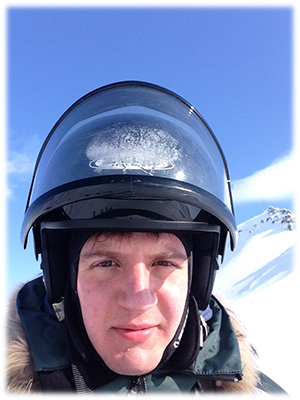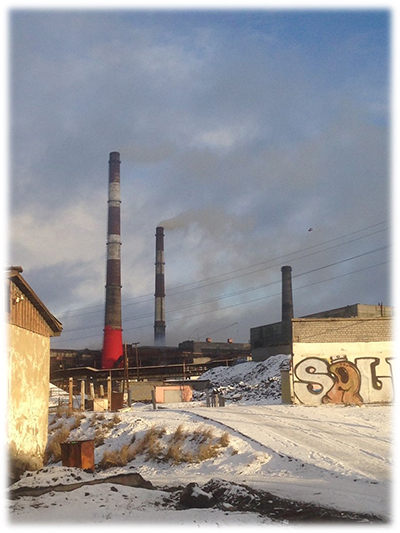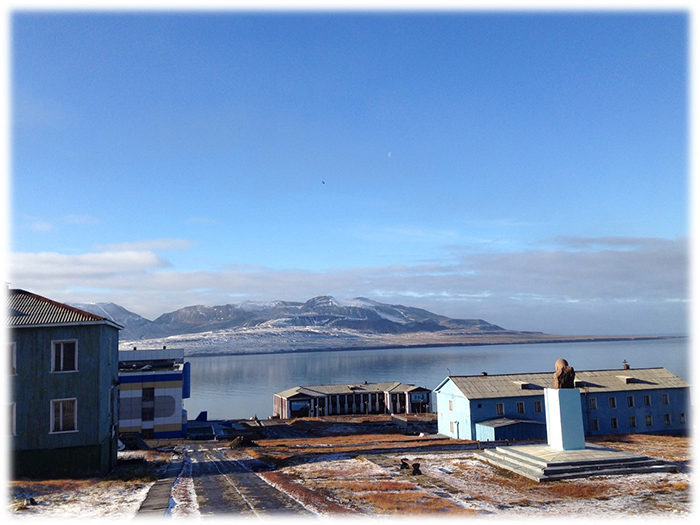Andrian Vlakhov is a PhD Candidate and Junior Research Fellow at the European University at St. Petersburg; he is now a visiting researcher in the NPE research group of the Arctic Centre. His research focuses on the social dimension of the extractive industries in the Arctic, urban development in the High North, and Russian–Nordic relations.

While I don’t live in the Arctic myself, instead enjoying the fabulous architecture and cultural heritage of imperial St. Petersburg from my home window, I’ve always felt strong attachment to the North and to places far from “civilized”, large-city world. That’s what has most likely influenced my decision to be an anthropologist, and that’s what urges me to go fieldworking several times a year.
My original background lies in the linguistics; I’ve already been studying sociolinguistic issues of the post-Soviet Russia when I chose the Komi community of the Kola peninsula to be the object of my Master’s studies. During my fieldwork in the village of Lovozero, I suddenly realized that the social context of the life in the North are of much greater interest to me that those dull sociolinguistic variations, and took up the complex task of changing the focus area.
I’ve studied anthropology at the European University at St. Petersburg, a small put proud independent university famous in Russia for its high-end research team in the social sciences and humanities. In 2013, I got my Master’s degree in Social and Cultural Anthropology there, focusing on the collective identity building in the Russian part of the Barents Region. After that, I’ve started my PhD studies at the same Department of Anthropology, continuing my research on the Arctic extractive industries and communities they create. The case study for my research is the Russian mining settlement in the Svalbard archipelago, the town of Barentsburg.
Svalbard possesses unique status in the international relations. In 1920, the archipelago has become a part of Norway, but according to the Svalbard Treaty, any signatory state can maintain settlements there. As for now, only two states have been actively using that right: Norway and Russia; the latter owns the mining town of Barentsburg, with the population of 500. The Barentsburg mine has been producing coal since the 1930s, serving also as a political instrument in Russian–Norwegian relations. 
The crisis of the coal industry has destroyed the fancy picture of the “sanctuary of the 1970s” and has put the community to the verge of fundamental changes. The new economic model for the town and the very existence of the mine are the most pressing issues for the community. In my PhD project, I’m studying the structure of the local community, the processes of redevelopment of Barentsburg and the community response to these changes. My research brings to light different approaches to the urban sustainability in the Arctic, while I argue that the societal and economical model of Barentsburg is unique for the Arctic and should therefore be described from different points of view; I’m trying to take into account both Western and Russian approaches to the concept of urban sustainability. There is also a political studies dimension to my research as Svalbard and the entire Russian–Nordic borderland present an interesting case of diplomacy-based construction of the Arctic urban futures.
Besides my PhD project, I also continue working on the Barents Region studies and Russian–Nordic relations as a part of two Russian Science Foundation projects.
My first visit to Rovaniemi was in 2012 when I went here for a vacation trip. While visiting the Arktikum exhibition, I was wondering if there are some research facilities in the institution; it happened that there were. It escalated quite quickly: soon I was there again for a summer school, then another, then a couple of conferences. So, when I realized I need a safe haven for the final stage of my PhD work, there was no question about where to go. Staying now in the Arctic Centre for two-month research visit, I’m part of the Sustainable development research group, hoping to contribute to the group work with my experience and gain new knowledge for my own work. I’m glad the Arctic Centre (and Monica in particular) has agreed to accept me for these two months: it’s a wonderful opportunity to meet the leading scholars in the area and get things right in my own head. I hope my stay will be beneficial for both sides.
Oh, and this is of course traditional to write something about non-work-related activities in the end. I would like to finish with what was in the beginning: not living in the Arctic myself, I find my inspiration in traveling to the Arctic, looking at how large and diverse it is. Now, it’s 45 places and counting; may I hope the list never ends.

Text and photos by Andrian Vlakhov